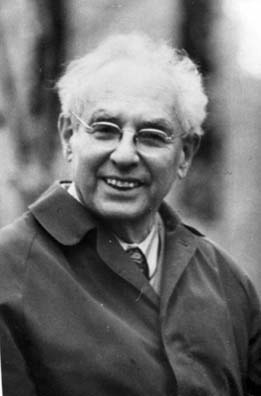Alexander Luria
From Psy3241
Alexander Romanovich Luria (1902-1977) is a Russian neurologist and psychologist. He has been cited by Solsa and colleagues as the most frequenly cited Russian psychology scholar in the North American continent. Luria proposed the brain as a functional system, in which different areas act together to result in behavior.
Luria’s first book in the English language is "The Nature of Human Conflicts". The book focuses on real emotions and the difficulty in studying them in a laboratory setting. First, he explains that emotions cannot be simulated by experimental manipulation and the result of this is artificial. Second, emotions should be studied in a real-life setting because it is important to examine the effects on voluntary behavior. To surmount the difficulties with real emotion, Luria developed combined motor method, an approach to map the effect emotions have on voluntary behavior. With this technique, Luria was able to develop real-life conflict models.
His work in the neuropsychology field has been extremely influential; one of the more important topics in his work is his stance on localization and the cerebral organization of mental function. Tupper adds, "...Luria's neurolinguistic interests and aphasia classification, his drug and cognitive approaches to rehabilitation of individuals after brain injury, his discussions of breakdowns in regulatory activity associated with frontal lobe damage, and his qualitiative approach to assessment are all major areas of Luria's work" (Tupper 1999). In contemporary neuropsychology, Luria's theory of the three functional units of the brain is still an important learning method due to its simplicity.
References
Tupper, D. E. (1999). Introduction: Alexander Luria's continuing influence on worldwide neuropsychology. Neuropsychology Review, 9(1). 1-7.
See also: Luria-Nebraska battery

